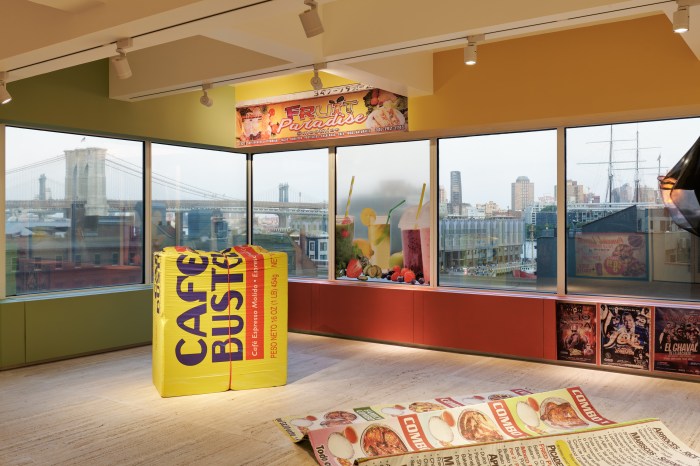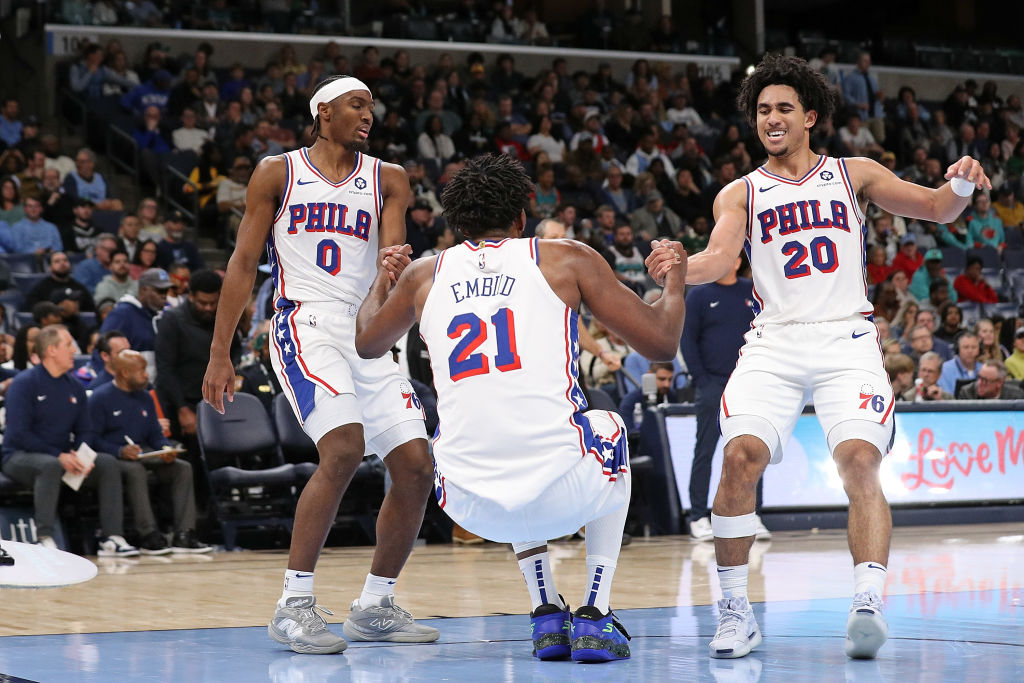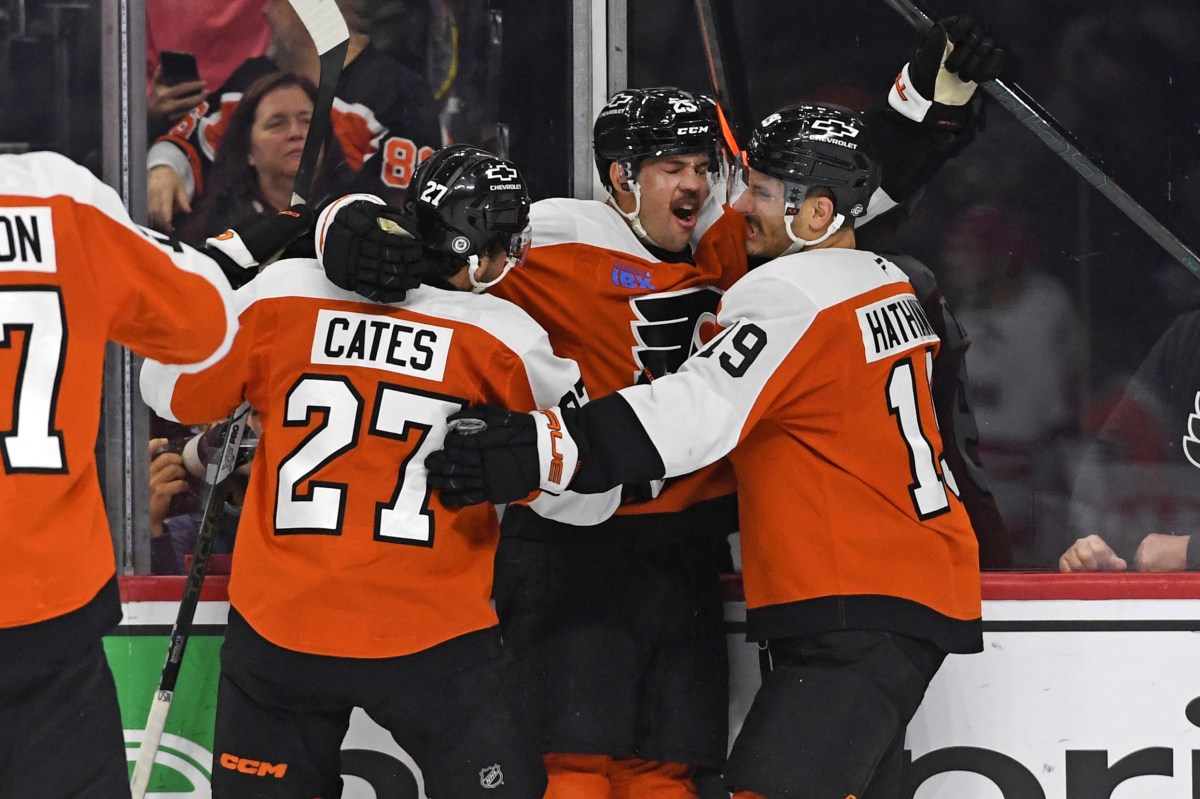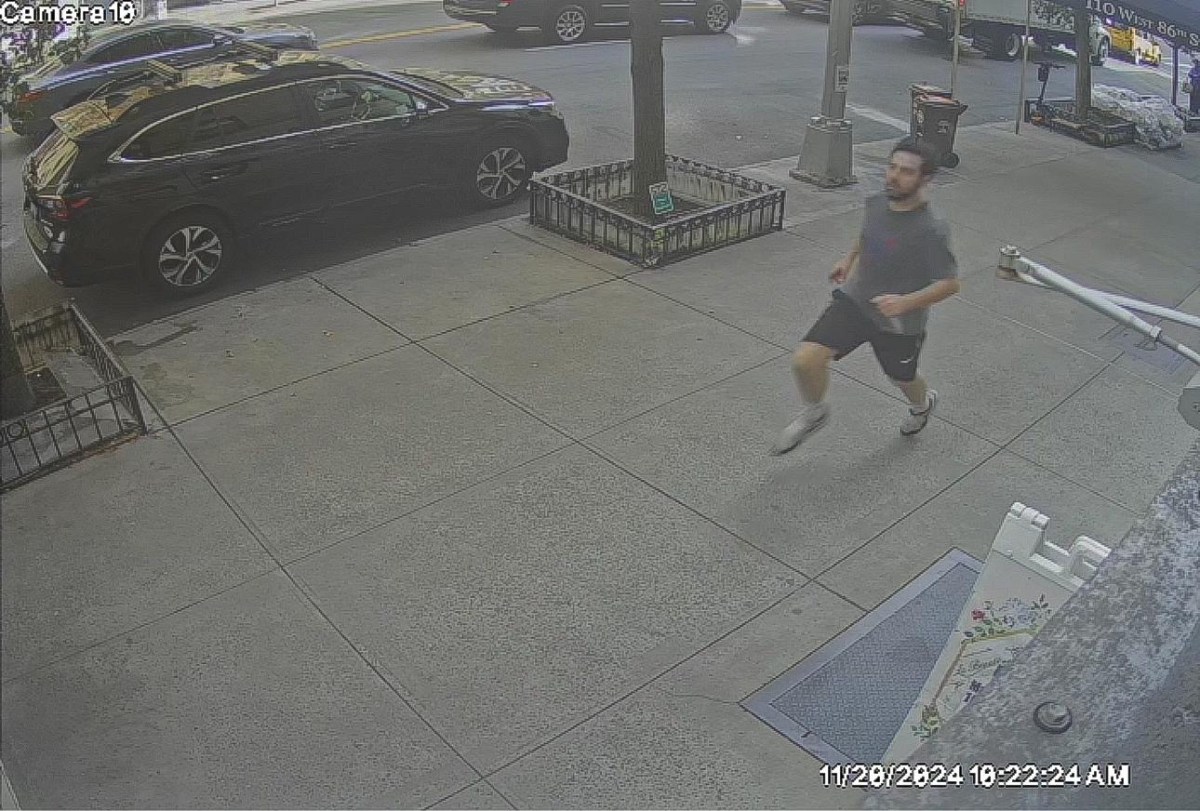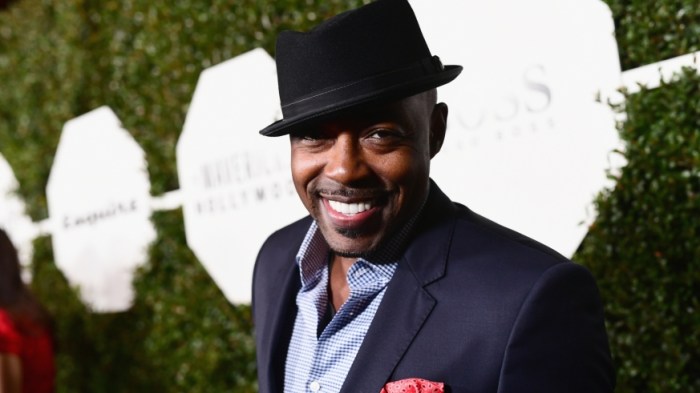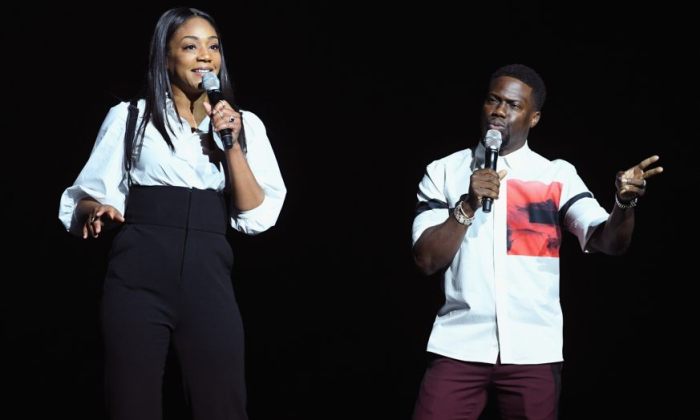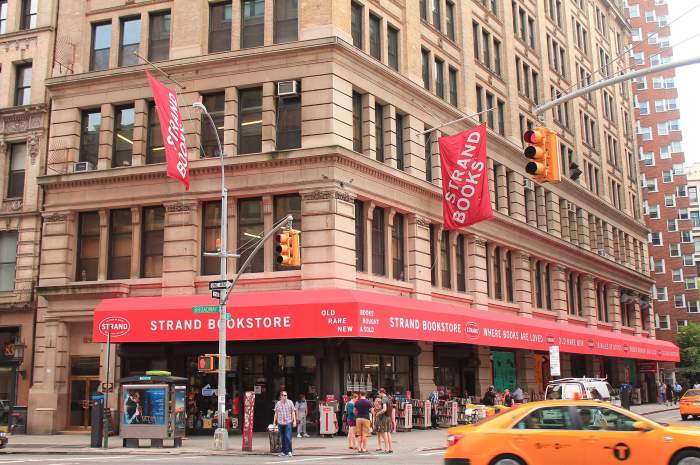Last month Will Packer Productions named James F. Lopez as its new president, a position that will see him work alongside its eponymous founder to help grow the company.
There’s plenty to build off, too. Because in his previous position as Will Packer Productions’s head of motion pictures, Lopez helped to oversee the likes of “Breaking In,” “Night School” and “Girls Trip,” each of which have had huge success in recent years.
“I am so excited to have him onboard,” Packer recently told me over the phone.
“He is somebody that gets talent. That gets taste, he gets my taste. He is somebody that completely understands that in a very crowded market place you have to have something that stands out.”
“You have to have content that is provocative and people will engage with. Otherwise audiences will just pass it by. They have too many options.”
“James has a great ear and eye for scripts and ideas and Intellectual Property that can cut through the clutter. The other thing that he brings to the table is talent relationships.”
“So together I want to continue to do what we have been doing really well, but I also want to broaden out and reach audiences around the world in bigger ways.”
“I also want to continue to reach our core audience that we have reached and drive home movies and content that can move the needle so to speak. That can make a difference. That people will care about. It is really, really tough to get audiences to care these days.”
I recently had the opportunity to talk to James Lopez over the phone about his new position, his plans for Will Packer Productions, working with Universal, and his love of Judd Apatow.
You can read my full discussion with Lopez, plus some additional comments from Will Packer, too, below.
Will Packer Productions has formed a formidable roster of talent. Tiffany Haddish, Malcolm Lee, Kevin Hart, the list goes on. Do you have more projects lined up with the same creative talent?
JL: Absolutely. Absolutely. One of my idols in this business is Judd Apatow. I idolize the man. I have never met him. But I idolize the man. I love all his films and I love the way he casts. So I model my casting after his. I am a huge fan of comedy. I am always at the clubs. I am always at The Laugh Factory, The Improv, The Comedy Store. Laugh Factory is where I first saw Tiffany years ago, and I watched her just grow as a comic. There are comics that I am just watching. I may not go up and introduce myself at that time. But I am noticing their work and how they are growing as artists. I always keep these people in mind when I am casting someone. I just admire Judd’s work and I think Will and I have that some credo of keeping the family together, keeping the team together. Directors, we have worked with Tim Story over and over again, Malcolm Lee, Tina Gordon, who is posting “Little” for us right now, I am already looking at two projects for her that might be her next film. We like to be in business with people that we get along with. That are talented. That help us to create that family atmosphere on set. When you are in the trenches working on a film for 3 or 5 months, you want to make sure you like them. We have been pretty fortunate to work with people that we want to work with again and again. We tend to keep family around and we want that family to grow. So we brought in Queen Latifah, Jada, Tiffany. Obviously it won’t be the last time we work with them. In the cast of “Night School” there is Al Madrigal, Rob Riggle. Riggle did a shark week show with us for our television production side, so we are talking to Rob about other projects. Madrigal we want to make more with. We made a independent movie with Romany Malco called “Prison Logic” that is brilliant. So just supporting our fiends and true artists, that is the thing that I see Judd Apatow doing.
In the past it always used to be said that movies starring African Americans couldn’t be sold overseas.
JL: Unfortunately it is still the case with a lot of movies. Slowly but surely the barriers are starting to come down. “Get Out” did significant numbers overseas. “Moonlight” did, too, for the small film that it was. “Straight Outta Compton” did very well. So did “Black Panther,” but the excuse with that is, ‘Well, that’s a Marvel movie and superheroes travel internationally.’ But it still had an all black cast. So I feel that the barriers are slowly coming down. International for our films in particular have been challenging. But we have been working hard to solve those issues. I am positive about it. I started my career in the music business. Back in the 90s the international department wouldn’t work rap overseas, because, ‘Rap doesn’t really translate in certain territories so we are not gonna put it out there.’ I was like, ‘What?’ Independents like Def Jam were finding ways to get their music heard in different territories. But I was working with a big giant corporate record label. They said, ‘Your artists don’t want to travel over there.’ I was like, ‘I am going to get my artists to travel over there. We are gonna change the culture at this company so that it is a no-brainer an artist will travel overseas, the album will get worked overseas.’ As technology advanced and YouTube came along and all that it made things a lot easier for kids to instantaneously be exposed to music around the world. I remember being in London with T.I. in 2003 or 2004, it was his first trip over there, and his album hadn’t come out yet. We finally convinced the studio to take us out there. But I remember leaving a radio station and us being surrounded by a mob of girls, maybe 500, because they’d heard him on air. I asked our British rep, ‘If our music doesn’t travel how do they all know about him?’ I then asked the kids, ‘How did you hear about him?’ They were like, ‘Bootleg and mixtape.’ I am like, ‘People around the world will figure out a way to get what they want if you’re not gonna give it to them.’ There was another situation when I was in Montpellier, France. “Stomp The Yard,” which Will produced years earlier, was playing on TV. I couldn’t really communicate, but when I asked, ‘How did you get the movie?’ They were like, ‘Bootleg.’ Cultural travels. It travels.
What has to be done to help these films travel?
JL: Studios have to put forth the resources in order to market overseas in certain territories so that it works. Sometimes it is a self fulfilling prophecy. You’ll hear, ‘It is not really gonna work in this market so we are not gonna send the star to work the market.’ But if you’re not gonna send the star to work the market then the result you think you’re gonna get is what you get. Stars like Will Smith and Kevin Hart work very hard internationally to make sure that their brand means something so that we can conquer and make inroads into these territories. Kevin has worked so hard and put in a lot of effort to work internationally. Selling out 2 or 3 nights at the O2 arena has benefitted his film career. He was very strategic in terms of how he toured internationally. Not every actor of color has that other outlet. But the same way that Jay Z and Beyonce and Kendrik Lamar are able to do sold out tours around the world, you can’t tell me that the minute they appear on screen for a movie they can’t sell tickets. So a lot has to do with the material, the concept of the film, in order for it to translate properly. We have been told over and over that action films do a lot better around the world because you can tell the story regardless of language barrier. Comedy is harder. There’s a lot of validity to all that. But Will and I and our partners at Universal are making strides to knock down those barriers. With every movie that we release we want to get better at knocking down those walls when it comes to international box office. We couldn’t have better partners than those at Universal. They believe in us as a team and as a company. They believe in our projects. They put maximum effort into releasing our movies. They treat our movies as big, general market releases. We don’t get put in the ghetto, like, ‘Oh this is a black film. Let’s do minimal marketing.’ We get treated on par as all the other releases. We are really fortunate to have great partners like that.
Are Universal unique in that way?
JL: I am not intimately involved with the releases of those other films at those other studios. But I kind of see how some studios treat movies that are similar to ours and I just feel like Universal are best in class when it comes to releasing films in African American markets or diverse markets and crossing them and making them real events for all sections of the population. They just have the experience of doing it over and over so they are better at it. Other studios have put out similar projects to ours that didn’t get the same results. It might be the quality of the film, but sometimes the output in terms of marketing and pushing the film just wasn’t there. We have the unique advantage of having a star like Kevin Hart that just doesn’t sleep. That’s another reason why we have been so successful in the amount of projects we have done with him. Will is also very astute at finding our audiences for our films. I give him a lot of credit, too. Along with the department at Universal. It really is a partnership when we talk about roll out. I feel like that symbiotic relationship is really unique in our business. I like to think that when it comes to the comedy space Will Packer and Universal combined are pretty formidable.
What’s coming up for Will Packer Productions then?
JL: We have a few things in development that are a departure from what we’re known for to date. We have a project called “Warrior Queen,” which is an ancient African epic. The best way to describe it is the African woman’s “Braveheart.” It is about a Queen named Amaniernas that defeated the Roman army in BC times in ancient Africa. It is a compelling story that you don’t read a lot about in history books. We have an amazing script. That’s a story that I want to tell and bring to screen one day. It is by far the most ambitious project we have done to this day. But if done successfully, that could change the scope of our company. We have a project called “City Of Saints And Thieves” that is currently being adapted. It is a book being written now that we are co-producers with Simpson Street, Kerry Washington’s company, and she is attached to star. We have a project called “312” that is dealing with the gun violence and the issues of the south side and west side of Chicago. That is an important story to tell. I am constantly looking for projects that tackle social justice issues. I have aspirations to make sure that our company is not only doing comedies but doing projects that are meaningful. As artists and producers we aspire to win a couple of golden statues one day. We are constantly looking for projects like that to balance out what we are doing. We know what we are known for, and will never abandon that. But we also want to make sure that we are expanding beyond that. We are just trying to make sure that we do that, and we are taking on micro-budget projects. “Breaking In” was our first micro budgeted film, and that did really good numbers for what we made it for. So we want to make to continue to do that.
WP: You hope that throughout a career every project is elevating you and taking you to the next level. Taking you towards something. Have I made my best movie yet? I hope I haven’t. Have I made my biggest movie yet? I hope I haven’t. I hope I can continue to make content that grows and reaches broader audiences. I want to reach audiences around the world. I hope “Night School” travels well and works in different countries. I have big aspirations. I think I have had a lot of success, I am very fortunate to have had the success I have had in this business. I am optimistic about how audiences will receive this.
Is it just going to be in movies?
WP: Here’s the interesting thing, we have a television division of our company. We also have a digital division as well. We are doing scripted and unscripted TV. That allows us to have an idea and not be forced to shoe horn our idea into a particular medium. In other words, if you and I have a shoe company. And all we do is design shoes, sell shoes and distribute shoes. If somebody brought us a great idea for a hat we would be trying to figure out how to wear it on your feet. What I didn’t want to do was have a company that was so singular and focused that every piece of content we got we had to think of it in one way. I wanted to have content that we could think of in multiple ways that could work across multiple mediums.
How will you decide what is successful then? Is it money or impact?
JL: We want to try to balance the slate out as much as we can. Moving forward and picking the projects that we do is going to be purely based on quality. We have a great relationship over at Focus Features, we have a project over there that I can’t really talk about now. But the budget for that will be significantly lower than we usually work with. But I am a big fan of what Focus Features does and I want to be in business with them. But as far as moving forward we will always continue to do the “Girls Trips” and the “Night Schools” but combining that with “Warrior Queen,” “City Of Saints And Thieves” that are significantly more in budget. But what it all comes down to is what Will and I are most passionate about. When we first partnered together we made a vow that unless both of us are passionate about it then we won’t do it. If we are both not equally excited we won’t do it. That’s the only criteria really. We won’t put any lengths to what we can be and what we’ll do.


